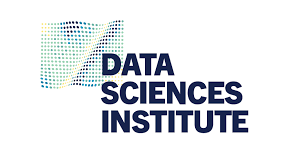Abstract: Addressing complex scientific challenges requires weaving together data from diverse sources, organisms, contexts, formats, and granularities, and building a coherent holistic view of this data landscape to address any given problem. Often in the aggregation process, many of the original connections within the data are lost. Moreover, it is difficult to infer connections without a common conceptual model. A common model is made possible by novel data integration strategies that leverage semantic technologies such as ontologies, knowledge graphs, and common modeling frameworks. However, it takes the people too; robust interdisciplinary collaboration and data access can advance translational science and innovation. This talk will discuss lessons learned in the context of rare disease diagnostics and mechanism discovery, as well as Real World Data collaborative analytics on COVID data.
Bio: Dr. Melissa Haendel is the Chief Research Informatics Officer at University of Colorado Anschutz Medical Campus, the director of the Center for Data to Health (CD2H), and an elected Fellow of the American Medical Informatics Association. Her background is in translational science, with a focus over the past decade on developing ontologies, semantic engineering technologies, and open science infrastructure programs. Dr. Haendel’s vision is to weave together healthcare systems, basic science research, and patient generated data through development of data integration technologies and innovative data capture strategies. Dr. Haendel co-leads the Monarch Initiative, an international consortium dedicated to utilizing model organism genotype-phenotype data, deep phenotyping, and graph-based integration techniques to improve rare disease diagnosis. The CD2H is tasked with coordinating informatics across 60 US academic medical centers, and is focused on implementation of cloud and information architecture, clinical data model interoperability, and precision-medicine focused terminology development. Dr. Haendel also led the GA4GH Clinical and Phenotypic workstream for a number of years, where she has supported cross-disciplinary international teams, the development of the ISO-approved Phenopackets standard for clinical genetics in rare disease and cancer, and improving access to data worldwide.


